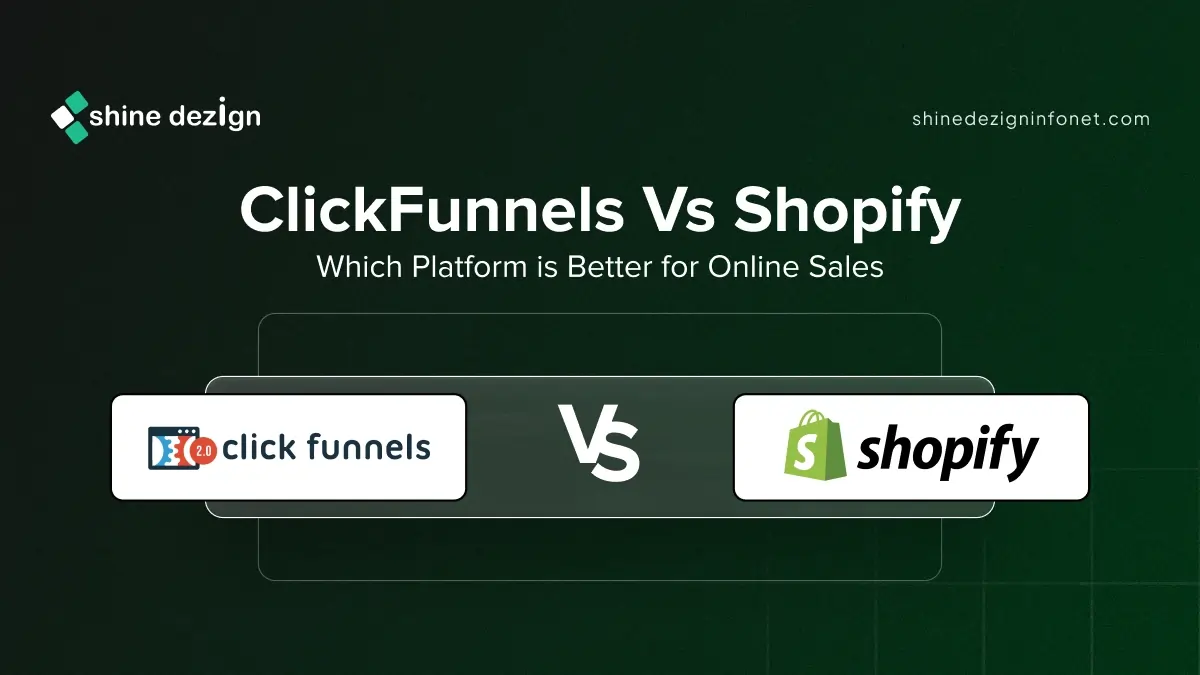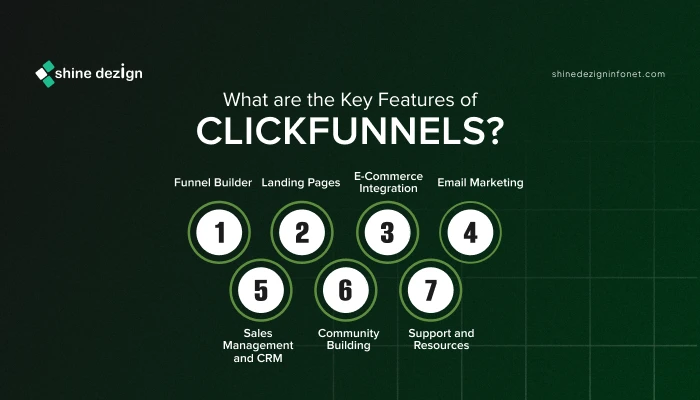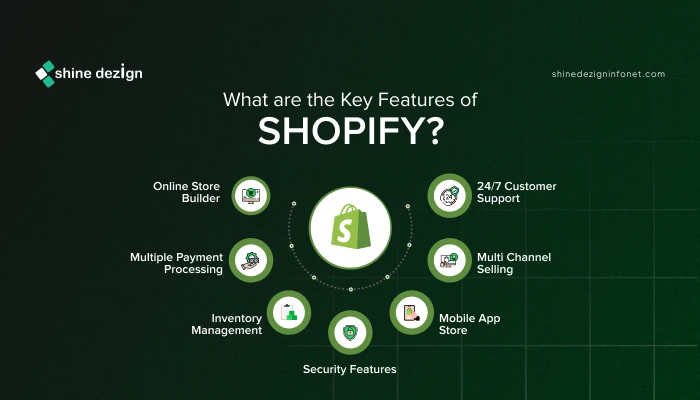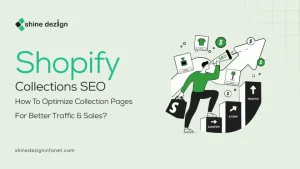Table of Contents
- Introduction
- What is ClickFunnels?
- What are the Key Features of ClickFunnels?
- What are the Advantages and Disadvantages of ClickFunnels?
- What is Shopify?
- What are the Key Features of Shopify?
- What are the Advantages and Disadvantages of Shopify?
- Pricing: ClickFunnel vs Shopify
- What is the Difference Between ClickFunnel and Shopify?
- Which Platform to Choose and Why?
- Summing Up
Selecting the appropriate platform for online sales is the key to success. Two of the largest platforms are ClickFunnels and Shopify, each having different features depending on the needs of the business. In this blog post, the major features, price, and variation between them, like ClickFunnels vs. Shopify, will be discussed to assist you in choosing the better platform for your online sales plan in 2026.
What is ClickFunnels?
ClickFunnels is a robust marketing and sales funnel software developed to assist companies in building efficient sales funnels that convert website visitors into customers. It makes it easy to design landing pages, execute email marketing, and automate sales processes, thus being available for users with different technical skill levels.
What are the Key Features of ClickFunnels?
 1. Funnel Builder
1. Funnel Builder
Drag-and-Drop Interface: ClickFunnels offers a user-friendly drag-and-drop editor that enables users to design and modify sales funnels quickly without requiring coding knowledge.
Pre-Built Templates: Users can select from a number of pre-built funnel templates specifically designed for various uses, including lead generation, product launches, and webinar registrations, to quickly get started.
2. Landing Pages
High-Converting Designs: ClickFunnels has a variety of landing page templates that are specifically designed to convert, making it easy for users to capture leads.
A/B Testing: A/B testing allows users to test various landing page versions to ascertain which design or content is more effective, making data-driven optimizations possible.
3. E-Commerce Integration
Online Store Creation: Users can create online stores where they can sell physical and digital products directly from their funnels.
Checkout Pages and Order Forms: ClickFunnels offers customizable checkout pages and order forms, including upsell and downsell options to maximize average order value.
4. Email Marketing
Built-in Email Automation: ClickFunnels features integrated email marketing functions that enable users to design and build email campaigns within the platform.
Behaviour-Based Automation: Users are able to create automated email campaigns based on user behaviour, like enrolling for a newsletter or leaving a cart.
5. Membership Sites
Create Membership Areas: Users are able to create membership sites to provide special content, online courses, or subscription-based services.
Access Control: ClickFunnels enables users to control member levels of access and subscriptions so that only paying members can view premium content.
6. Sales Management and CRM
Customer Relationship Management (CRM): ClickFunnels has CRM tools that enable users to monitor leads, keep track of customer interactions, and monitor sales pipelines.
Appointment Scheduling: Users are able to deal with appointments and bookings from within the platform, making it easy for sales processes to be streamlined.
7. Reporting and Analytics
Performance Dashboard: ClickFunnels gives users an extensive analytics dashboard that monitors funnel performance, conversion rates, and user behaviour.
Insights and Reporting: Reports can be generated by users to measure the performance of their funnels and marketing campaigns, enabling them to make good decisions.
8. Community Building
Online Community Features: ClickFunnels enables users to host and organize online communities, with the aim of engaging community members.
Discussion Forums: Users can establish forums for discussion, Q&A, and member interactions, which creates a better community experience.
9. Integrations
Third-Party Integrations: ClickFunnels can integrate with a number of third-party software and services, including payment gateways, email marketing platforms, and webinar solutions.
API Access: For power users, ClickFunnels also provides API access for customized integrations, providing more flexibility and capability.
10. Support and Resources
Customer Support: ClickFunnels offers customer support through several channels, including live chat and email, so users can get assistance when they need it.
Training and Resources: The site provides vast training material, tutorials, and community support to enable users to get the best out of ClickFunnels.
What are the Advantages and Disadvantages of ClickFunnels?
Advantages of ClickFunnels
- Simplified interface with no technical requirements for users to build funnels.
- Integrated platform to construct funnels, conduct email marketing, and carry out sales management.
- Structured to streamline sales processes, which results in increased conversion rates.
- Large active user base and rich resources for learning and troubleshooting.
Disadvantages of ClickFunnels
- There can be high subscription charges, particularly for small enterprises or new businesses.
- Though easy to use, some advanced functionalities might take time to master.
- Some design restrictions might be found by users in comparison to completely custom solutions.
- There might be extra fees on specific payment processing choices.
What is Shopify?
Shopify is an all-encompassing e-commerce platform that allows people and businesses to build their own e-stores. It offers a simple interface and an array of tools to facilitate users in managing their sales, stock, and customer relationships. Shopify supports an array of users, from small business owners to big corporations, in selling products online and physically through various channels.
What are the Key Features of Shopify?
 1. Online Store Builder
1. Online Store Builder
Drag-and-Drop Interface: Shopify offers a user-friendly drag-and-drop interface where users can simply customize their online store without requiring any coding expertise.
Themes: Users can select from a range of professionally designed themes, such as the Yuva Theme Shopify, which can then be customized to suit their brand identity.
1. Online Store Builder
Drag-and-Drop Interface: Shopify offers a user-friendly drag-and-drop interface where users can simply customize their online store without requiring any coding expertise.
Themes: Users can select from a range of professionally designed themes, which can then be customized to suit their brand identity.
2. Payment Processing
Multiple Payment Gateways: Shopify has a wide variety of payment gateways, including credit cards, PayPal, and third-party payment processors.
Shopify Payments: Shopify Payments enables users to eliminate the added transaction fees and simplify the payment process for customers.
3. Inventory Management
Stock Tracking: Users can track stocks easily, receive low stock notifications, and manage product variants (such as size and colour).
Order Management: Shopify enables efficient order management, including handling returns and exchanges.
4. Marketing Tools
SEO Features: Integrated SEO features allow optimization of product pages and blog posts to enhance search engine visibility.
Email Marketing: Customers can send and create marketing emails from within the platform and also integrate third-party email marketing tools.
Social Media Integration: Shopify enables selling products on social media sites such as Facebook and Instagram.
5. Analytics and Reporting
Dashboard: The Shopify dashboard offers an all-around view of sales, traffic, and customer activity.
Custom Reports: Customers can create detailed sales reports, customer demographics, and product performance to make data-driven business decisions.
6. Mobile App Store
Management on the Go: The Shopify mobile app allows users to manage their store from anywhere, including processing orders, updating inventory, and communicating with customers.
7. App Store
Extensive App Marketplace: Shopify’s App Store features over 13,000 apps that can enhance the functionality of the store, including tools for accounting, shipping, customer service, and more. Additionally, businesses can invest in custom Shopify App Development to create tailored solutions that meet their unique operational needs and provide a more personalized experience for their customers.
Integration Capabilities: Third-party applications are easily integrated by the users to broaden the capabilities of their store.
8. Customer Support
24/7 Support: There is round-the-clock support available via live chat, email, and phone, so users are able to get assistance at any time.
Documentation and Community: They have extensive documentation, tutorials, and community forums to help the users resolve problems and learn more about the platform.
9. Security Features
SSL Certificates: Shopify offers SSL certificates for every store, which means customer information is encrypted and secure when a transaction is made.
PCI Compliance: Shopify is PCI compliant, meaning it follows stringent security guidelines for processing credit card information.
10. Multi-Channel Selling
Sell Across Multiple Platforms: Shopify enables one to sell on various platforms, such as online stores, social media, marketplaces (such as Amazon), and offline through Shopify POS (Point of Sale).
What are the Advantages and Disadvantages of Shopify?
Advantages of Shopify
- User-friendly interface that does not necessitate technical know-how to install and operate.
- Works for businesses of any size, from small startups to large companies.
- All-in-one solution with all the features required to operate an online shop.
- PCI compliant and provides SSL certificates for safe transactions.
- Ongoing improvement and new features are added continuously.
Disadvantages of Shopify
- Extra charges for using third-party payment gateways, except when using Shopify Payments.
- The level of customization is limited compared to fully self-hosted options.
- Subscription fees can mount, particularly for advanced features and apps.
- While simple features are intuitive, certain advanced functionalities might come with a learning curve.
Pricing: ClickFunnels vs Shopify
ClickFunnel Pricing
| Plan | Pricing |
|---|---|
| Launch | $97/Month |
| Scale | $197/Month |
| Optimiza | $297/Month |
Shopify Pricing
| Plan | Pricing |
|---|---|
| Basic | $39/Month |
| Grow | $105/Month |
| Advanced | $399/Month |
| Plus | $2300/Month |
What is the Difference Between ClickFunnels and Shopify?
The primary difference between ClickFunnels vs Shopify is in their respective functionalities. ClickFunnels exists mainly to create sales funnels and enhance marketing, whereas Shopify is a specialized e-commerce site that exists to develop and maintain online stores. If you wish to create sales by way of effective funnels, ClickFunnels is the correct option. But if you are interested in an all-around e-commerce solution, Shopify is more suitable.
| Feature | ClickFunnels | Shopify |
|---|---|---|
| Primary Focus | Sales funnels and marketing | E-commerce and online stores |
| Funnel Builder | Yes | No |
| E-Commerce Features | Limited | Comprehensive |
| Email Marketing | Integrated | Requires third-party integration |
| Membership Sites | Yes | No |
| Pricing | Starts at $97/Month | Starts at $39/Month |
| Customer Support | 24/7 support | 24/7 support |
| Learning Curve | Moderate | Low |
| Customization | Moderate | High |
Which Platform to Choose and Why?
When comparing ClickFunnels vs Shopify, the following factors should be considered:
Select ClickFunnels if:
- Your main concern is creating successful sales funnels to turn leads into buyers.
- You require built-in email marketing and automation tools to simplify your marketing.
- You wish to build membership sites or web communities to connect with your audience.
Select Shopify if:
- You want to create a fully-fledged online shop with rich e-commerce features.
- You need an easy-to-use platform for inventory management, order processing, and customer relations.
- You wish to sell merchandise through more than one channel, such as social media and marketplaces.
Summing Up
In brief, ClickFunnels and Shopify are both robust platforms that support different facets of online sales. Whereas considering ClickFunnels vs. Shopify, ClickFunnels is superior at building high-converting sales funnels and handling marketing campaigns, thus being ideal for lead generation and sales-optimizing companies. However, Shopify offers a complete e-commerce solution with features that are strong enough to handle online stores, stock, and customer relationships. Which one to use is directly dependent on your company’s specific needs and objectives.

















